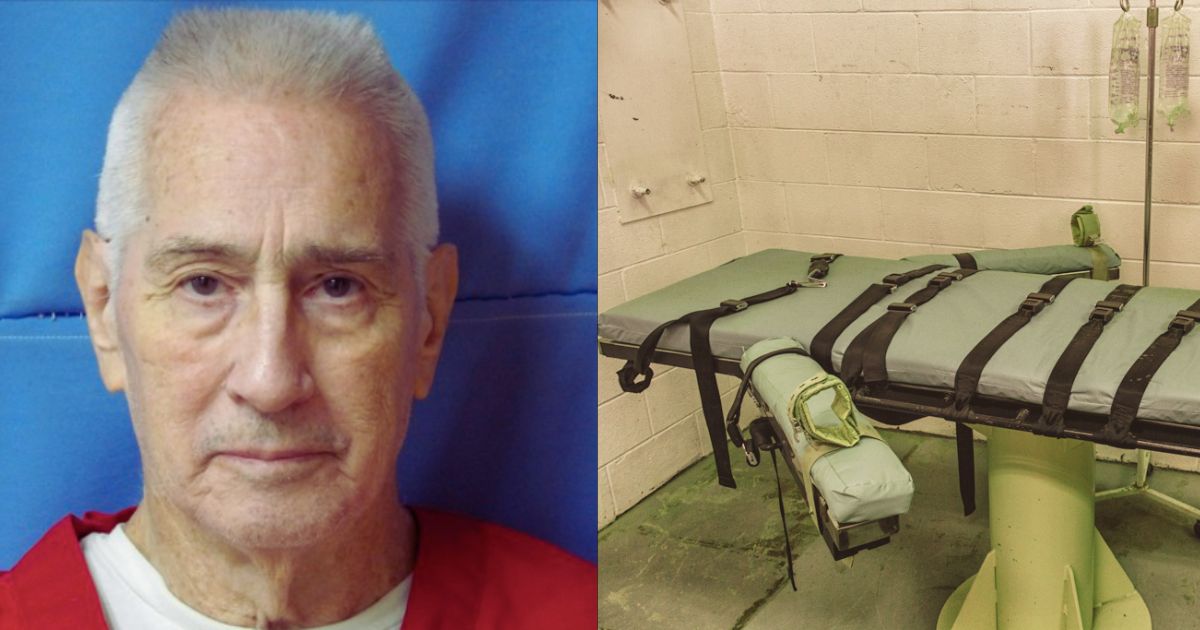Trigger Warning: This article mentions graphic details about crime and execution.
The United States of America, one of the most powerful nations in the world, has seen a series of crimes, cruelty, and serial killers who are still serving brutal death sentences. While the law across the country and its levels of punishments depend on the nature of the crimes committed, overall, it’s usually a prolonged and strict framework to protect the citizens and serve smooth justice to the criminals.
However, certain cases have changed the course of crime in America and questioned humanity and the nature of law. This story is about Richard Gerald Jordan, a 79-year-old Vietnam War veteran and one of the longest-serving inmates on death row in the U.S., who is scheduled to be executed today at 6 pm in the Mississippi State Penitentiary in Parchman.
As per The Mirror, Jordan’s execution will be carried out by lethal injection, making him only the third person executed in Mississippi in the last ten years. As of early 2025, he was one of just 22 individuals nationwide still on death row for crimes perpetrated in the 1970s, according to the Death Penalty Information Center.
Jordan committed the crime decades ago, but justice is yet to be served, even after 50 years. The case dates back to January 12, 1976, when Jordan phoned Gulf National Bank in Gulfport, Mississippi, requesting to speak with loan officer Charles Marter. After ending the call, he located the Marter family’s home address in the phone book, abducted Edwina Marter, and later shot her in an isolated jungle area. He then called her husband, falsely declaring she was alive, and demanded $25,000 in ransom.
View this post on Instagram
A recent petition claimed that Gerald Jordan had post-traumatic stress disorder (PTSD) related to his military service. His legal team, which included attorney Krissy Nobile from the Mississippi Office of Capital Post-Conviction Counsel, argued that he was denied an independent mental health expert during his trial. Nobile tried to dodge his sentence owing to his poor mental health and the struggles he saw during his time in the military.
As per the outlet, “His war service, his war trauma, was considered not relevant in his murder trial,” said Franklin Rosenblatt, the president of the National Institute of Military Justice, who wrote the petition on Jordan’s behalf. “We just know so much more than we did 10 years ago, and certainly during Vietnam, about the effect of war trauma on the brain and how that affects ongoing behaviours.”
Meanwhile, the victim, Jordan, who killed Edwina Marter, who was just 11 years old when he lost his mother, rejected all the claims and argued that Gerald Jordan did it because he wanted money. When he learned he could not take her with him, Jordan killed Edwina Marter. While he and other immediate family members will not attend the execution, some relatives plan to be present at it.
“He needs to be punished,” Eric Marter said. On Monday, June 23, 2025, the Supreme Court rejected Gerald Jordan’s final appeal to dodge the death sentence. It passed on the judgment, thereby closing the long and tiresome legal battle that witnessed countless court visits and appeals.













